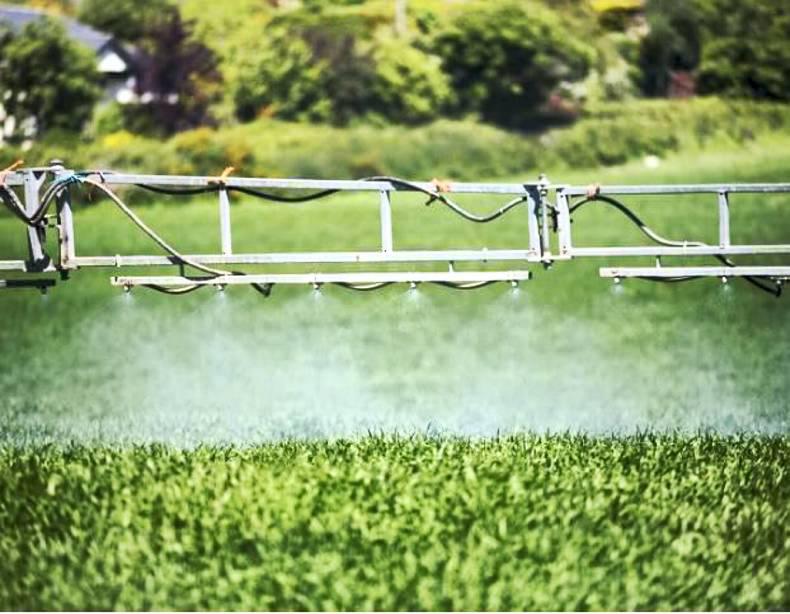Minister Michael Creed has said the EU’s process to review the authorisation of the herbicide ingredient glyphosate has clearly identified safe uses.
In response to a parliamentary question from Charlie McConalogue TD, Minister Creed said: “My Department considers that the EU peer review process for glyphosate has clearly identified safe uses and that the regulatory proposal presented contained appropriate measures for implementation by member states to address concerns that have been raised.”
There have been conflicting scientific reports into the potential health effects of glyphosate, with the European Food Safety Authority (EFSA) concluding that “it is unlikely that this substance is carcinogenic”.
This follows the failure of a specialist European Commission committee to agree and take a vote last week because of opposition from several EU member states.
Short-term extension
There are now reports that the Commission is expected to circulate a revised draft proposal, including an extension of the current license.
According to Agra Facts, the short-term renewal of the current license for a year and a half to two years would allow member states time to receive a new scientific assessment of glyphosate.
A separate EU body responsible for the safe use of chemicals is expected to table its report next year.
“It should be noted that the legal basis for the appropriate chemical hazard classification of glyphosate in Europe, including its carcinogenic potential, will be provided by an assessment overseen by the European Chemicals Agency (ECHA), which is due to begin later in 2016 and run for 18 months,” Minister Creed said.
If no decision is reached before the end of June, products containing glyphosate will be withdrawn from the market after a six-month grace period.
Science-based decisions
On Wednesday, the organisation representing European farmers COPA-COGECA wrote to Health and Food Safety Commissioner Vytenis Andriukaitis to express renewed concern over the possibility of not renewing the authorisation of glyphosate and disregarding EFSA’s conclusions.
COPA-COGECA says banning of the herbicide would put European farmers at an “unfair competitive advantage”.
Its general secretary Pekka Pesonen said that following the EFSA’s assessment “we assumed that the European Commission and other member states would approve since according to EU law, the decision should be science-based”.
“EU institutions and member states have a key role to play to strongly support our high food safety standards. It is totally unacceptable that the EU Commission should consider turning its back on science and agreed procedures and possibly banning it.”
Read more
Full coverage: Glyphosate
Minister Michael Creed has said the EU’s process to review the authorisation of the herbicide ingredient glyphosate has clearly identified safe uses.
In response to a parliamentary question from Charlie McConalogue TD, Minister Creed said: “My Department considers that the EU peer review process for glyphosate has clearly identified safe uses and that the regulatory proposal presented contained appropriate measures for implementation by member states to address concerns that have been raised.”
There have been conflicting scientific reports into the potential health effects of glyphosate, with the European Food Safety Authority (EFSA) concluding that “it is unlikely that this substance is carcinogenic”.
This follows the failure of a specialist European Commission committee to agree and take a vote last week because of opposition from several EU member states.
Short-term extension
There are now reports that the Commission is expected to circulate a revised draft proposal, including an extension of the current license.
According to Agra Facts, the short-term renewal of the current license for a year and a half to two years would allow member states time to receive a new scientific assessment of glyphosate.
A separate EU body responsible for the safe use of chemicals is expected to table its report next year.
“It should be noted that the legal basis for the appropriate chemical hazard classification of glyphosate in Europe, including its carcinogenic potential, will be provided by an assessment overseen by the European Chemicals Agency (ECHA), which is due to begin later in 2016 and run for 18 months,” Minister Creed said.
If no decision is reached before the end of June, products containing glyphosate will be withdrawn from the market after a six-month grace period.
Science-based decisions
On Wednesday, the organisation representing European farmers COPA-COGECA wrote to Health and Food Safety Commissioner Vytenis Andriukaitis to express renewed concern over the possibility of not renewing the authorisation of glyphosate and disregarding EFSA’s conclusions.
COPA-COGECA says banning of the herbicide would put European farmers at an “unfair competitive advantage”.
Its general secretary Pekka Pesonen said that following the EFSA’s assessment “we assumed that the European Commission and other member states would approve since according to EU law, the decision should be science-based”.
“EU institutions and member states have a key role to play to strongly support our high food safety standards. It is totally unacceptable that the EU Commission should consider turning its back on science and agreed procedures and possibly banning it.”
Read more
Full coverage: Glyphosate






 This is a subscriber-only article
This is a subscriber-only article










SHARING OPTIONS: